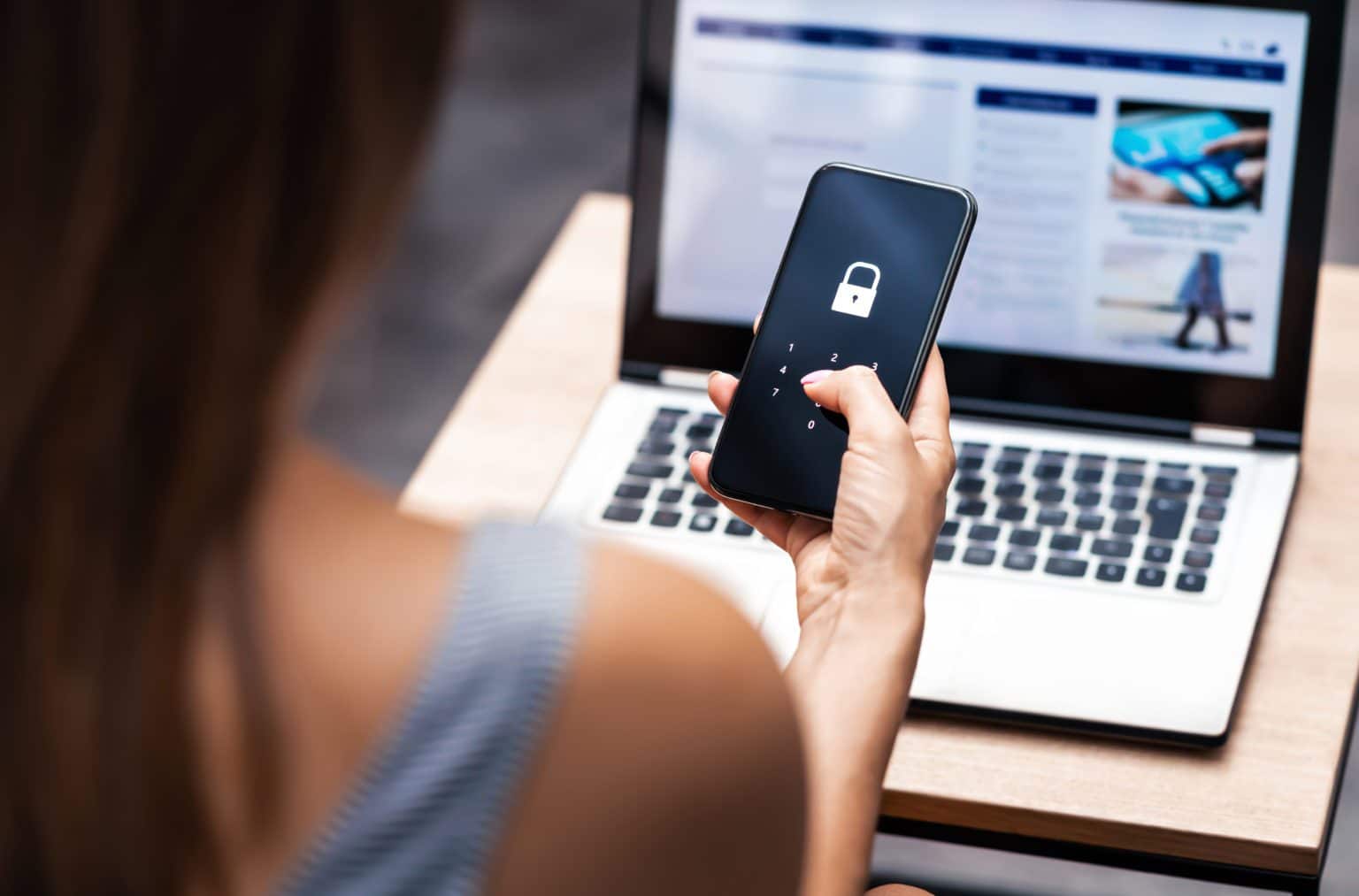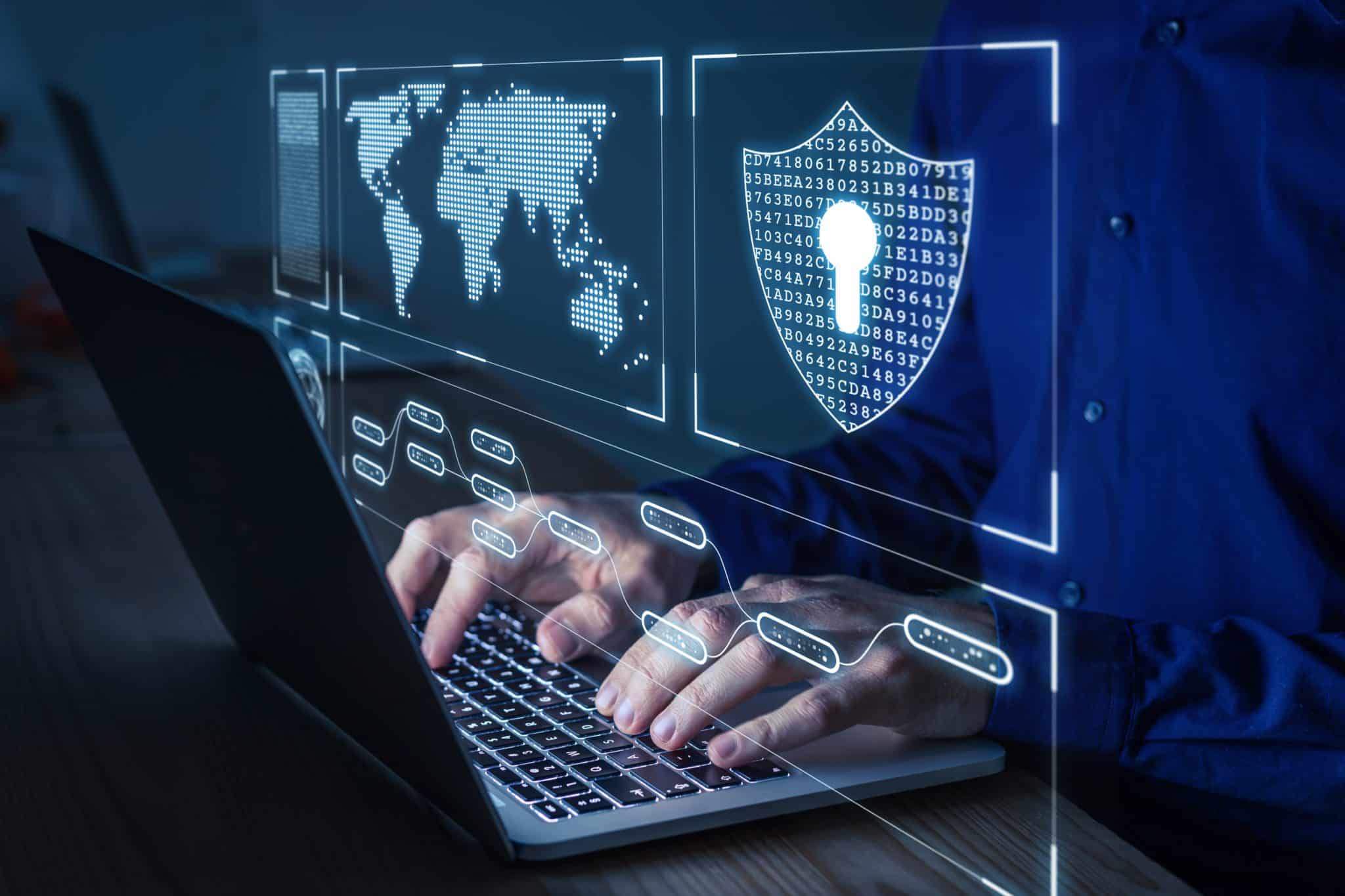It’s 2022, and your small business is thriving. Congratulations!
But as more and more businesses move online, the risk of cybercrime increases.
This article will discuss 10 cybersecurity tips that will help keep your business safe from online threats in 2022. Follow these tips, and you can rest easy knowing that your data is protected!
What Is Cybersecurity?
The term “cybersecurity” refers to the measures taken to protect electronic information and communication systems from unauthorized access, use, disclosure, disruption, or destruction.
Some examples of cybersecurity include:
- Firewalls
- Antivirus software
- Encryption technologies
It is essential to keep your systems up to date with the latest security patches to reduce your risk of being hacked. You should also create strong passwords and change them regularly. There are many ways cybersecurity can help your business reduce risk.
Cybersecurity can protect against:
- Data breaches
- Financial loss or fraud
- Theft of intellectual property or trade secrets
A recent cybercrime study showed that 43% of cyber attacks target small businesses.
That number contrasts with the fact that only 14% of small businesses have the necessary measures to defend against cyber attacks.
By following the tips below, small business owners can help protect themselves and their businesses from cybercrime in 2022.
The Best Cybersecurity Tips For Small Businesses
Small businesses are a significant target for cybercrime, as they often have less robust security measures than larger businesses.
Here are some tips for small businesses to improve their cybersecurity posture and protect themselves from cyberattacks:
- Use Firewalls
- Encrypt All Devices
- Third-Party Security
- Viruses & Malware
- Back-Up Everything
- Avoid Freebies
- Educate Your Staff
- Avoid Using Work Tech At Home
- Create a Cyber Atack Plan
- Watch Out for Physical Theft
- Limit Employee Access
- Keep Your Passwords Safe
Use Firewalls
Firewalls are important tools for protecting your computer network and data. They act as a barrier between your internal network and the Internet, preventing unauthorized access and safeguarding your data.
Various firewall products are available, so be sure to select one that meets your needs and is compatible with your network.
Firewalls can be configured to allow or deny access to certain websites or applications, so you can control what users can access.
They can also be set up to monitor traffic, so you can see which users are accessing which websites and what kind of information they are accessing.

Encrypt All Devices
Encrypting your devices is one of the best ways to protect your data. Encrypting your devices makes it more difficult for someone to access your data if they were to steal your device.
There are many ways to encrypt your devices, and each method has benefits and drawbacks.
If you’re looking for a way to encrypt your devices, here are a few methods that you can consider:
Encrypt your devices with a password. This is the most basic way to encrypt your devices, and it’s also the most common. Password-protecting your device makes it more difficult for someone to access your data if they were to steal your device. However, someone who knows your password can easily access your data.
Encrypt your devices with a fingerprint scanner. This more advanced way to encrypt your devices is becoming increasingly popular. By using a fingerprint scanner, you can ensure that only authorized users can access your data. This is a great option if you want to keep your data secure from unauthorized users.
Use software encryption tools. Several software encryption tools are available on the market, and many are free. These tools allow you to encrypt your devices without password-protecting them or using a fingerprint scanner. This is a great option for people who don’t want to hassle with passwords or fingerprint scanners.
Use an encrypted hard drive. If you want to take things one step further, you can use an encrypted hard drive to encrypt all your device’s data. This is a great option for people who want to ensure their information is entirely secure. It’s also an excellent option for businesses that want to keep their data confidential.
Third-Party Security
Third-party security is essential for small businesses that want to stay protected against cyber attacks.
For example, if you’re using a grammar checker or other productivity software for your business, it’s best to choose one with third-party security enhancements. This will ensure that your data is protected if the tool experiences a breach or is hacked by a cybercriminal.
By using the services of a reputable third party, you can outsource the security of your systems and data, which can be a significant relief for small business owners who are already stretched thin.

Viruses & Malware
As a small business, it’s important to be aware of the dangers of viruses and malware. These can easily infect your computer systems and steal or damage your data.
Here are a few tips to help protect your business from these threats:
- Install reliable antivirus software and keep it up to date.
- Create strong passwords, and don’t use the same password for multiple accounts.
- Don’t open attachments or click links in emails from unknown senders.
- Keep your computer systems and software updated with the latest patches and security updates.
- Regularly back up your data so you can restore it if it’s lost or damaged.
- Educate your employees about cybersecurity best practices and how to spot phishing attacks.
- Use firewalls and other security measures to protect your network from intruders.
Back-Up Everything
Back-ups are an essential part of any cybersecurity plan. By regularly backing up your data, you can help ensure that your business will be able to recover in the event of a cyberattack or other disaster.
There are many different ways to back up your data, including:
- Online back-ups
- Local back-up drives
- Cloud storage services
If you use multiple methods to back up your data, you’ll have multiple copies of your files in different formats. This will give you additional security and peace of mind, knowing that you’ll be able to recover your data no matter what happens.
The most important thing is to ensure that you are backing up your files regularly and that your back-ups are stored safely.
Avoid Freebies
One of the best ways to avoid becoming a victim of cybercrime is to avoid taking freebies. These offers are often too good to be true and come with hidden malware or spyware that can steal your information or even take over your computer.
Only download software or applications from trusted sources to protect yourself and be wary of any unexpected emails or attachments.
If something seems suspicious, don’t open it – instead, delete it immediately.
Educate Your Staff
Educating your staff is one of the most crucial steps in protecting your business from cybersecurity threats.
Cybersecurity training for employees should include the following:
- How to spot phishing emails and other types of social engineering attacks
- How to recognize and avoid potentially dangerous websites, links, or downloads
- Cybersecurity best practices for mobile devices such as smartphones and tablets
- Best practices for creating and managing passwords, including never sharing them with others
Avoid Using Work Tech At Home
Small businesses should avoid using work technology at home to prevent security breaches. If a small business employee accesses company information from their home computer, there is a greater risk of the data being hacked or stolen.
Home computers are typically not as well protected as company-owned devices, so there is a greater chance of compromised sensitive data.
Additionally, small businesses should create separate user accounts for work and personal use on company devices. This will help to prevent any accidental sharing of confidential information between personal and work accounts.

Create a Cyber Atack Plan
If your business is the victim of a cyber attack, it’s crucial to have a plan.
You need to know how to respond, who to contact, and what steps to take. Here are some things you can do to protect your business from cyber attacks.
Some critical elements of a cyber attack plan include:
- Identifying potential threats before they occur
- Having access to reliable data back-up solutions
- Developing incident response procedures
With these measures in place, your business can reduce the chances of a cyber attack and recover if one does occur.
Watch Out for Physical Theft
Small businesses often target physical theft because they may not have the same security measures in place as larger businesses.
Thieves can easily steal laptops, smartphones, or other portable devices that contain sensitive data.
Limit Employee Access
One way to limit employee access is to set up different permission levels depending on the employee’s role in the company.
For example, you might give lower-level employees access to specific files while restricting more sensitive information to those with higher-level permissions.
You can also use passwords or other security measures to restrict access to certain areas of the network.
Keep Your Passwords Safe
One of the most important things you can do to keep your business safe from cybercrime is to ensure your passwords are strong and secure.
Here are a few tips for creating passwords that are difficult to crack:
- Use a variety of characters, including numbers and symbols
- Don’t use easily guessed words or phrases
- Change your passwords frequently
- Never share your passwords with anyone else
- Use a password manager to keep track of all your passwords
In Conclusion
As a small business owner, keeping up with the latest cybersecurity practices and taking measures to protect your organization from potential attacks is essential. With these tips in mind, you can help ensure the safety of your systems and data.
If you have any cybersecurity tips, let us know in the comments below!


